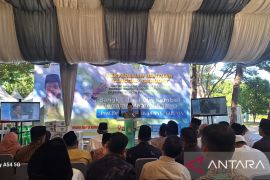More than 5,000 pages with content deemed to be critical of the royal family were taken down between December and March, Thailand`s national police spokesman Piya Utayo told reporters.
"We found that the number of inappropriate or insulting posts was less and less," he said, without explaining the cause of the reduction.
Lese majeste, or article 112 of the Thai criminal code, is designed to protect senior royals from insult, but academics say it has been politicised in recent years.
The royal family is an extremely sensitive subject in Thailand, with 84-year-old King Bhumibol Adulyadej revered as a demi-god by many.
Social media websites such as Facebook and Twitter are providing a platform for both critics of the law and ultra-monarchists, who have encouraged Internet users to report posts that are regarded as insulting the royals.
On Monday, media rights group Reporters Without Borders said in a report that the current Thai government of Prime Minister Yingluck Shinawatra had presided over a worsening of Internet censorship.
"If Thailand continues down the slope of content filtering and jailing netizens on lese majeste charges, it could soon join the club of the world`s most repressive countries as regards the Internet," the report said.
Under Thailand`s strict lese majeste rules, insulting the monarchy or a member of the royal family can result in jail terms of up to 15 years. Anyone can file a lese majeste complaint, and police are duty-bound to investigate it.
And under Thailand`s computer crime law, introduced in 2007, acts of defamation and posting false rumours online are punishable by five years in jail.
Recent cases have sparked fierce debates, including over a 61-year-old man who was jailed in November for 20 years for sending text messages deemed insulting to the monarchy.
A Thai political activist was sentenced in February to seven and a half years in prison for insulting the monarchy.(*)
Editor: Heru Purwanto
Copyright © ANTARA 2012










